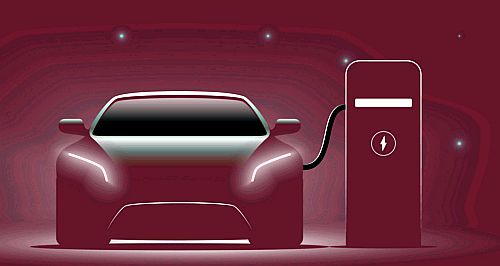Make / Model Search
News - General News - Electric VehiclesFuel efficiency standards' $13b benefitClimate Council, EVC modelling says Aussies could each save $1200pa from new rules5 Jul 2023 By MATT BROGAN NEW modelling commissioned by the Climate Council and Electric Vehicle Council shows Australians can individually save up to $1200pa on vehicle running costs if the federal government delivers strong fuel efficiency standards.
The privately commissioned analysis by economics advisory firm Mandala Partners found that Australians could collectively share in up to $13.6 billion in net benefits by 2035 from reduced vehicle running costs, while also enjoying “cleaner air and less environmental damage”.
Importantly, the Climate Council and Electric Vehicle Council says strong fuel efficiency standards would result in up to 31 million fewer tonnes of harmful pollution over the next decade, and rapidly increase the number of low and zero emissions vehicles available to buy.
“This modelling underlines that a strong fuel efficiency standard will deliver huge benefits for Australians in cheaper running costs for vehicles, while also reducing pollution and climate harm from transport emissions,” said Climate Council head of advocacy, Dr Jennifer Rayner.
“This means Australians can keep more of their hard-earned cash, instead of watching it rapidly drain away at the petrol bowser.
“Australia cannot remain a dumping ground for expensive, polluting vehicles that cost our hip-pockets, health, and environment. Every day we wait to put in place strong fuel efficiency standards means Australians are paying more than they should for fuel and pumping out more harmful pollution.”
Dr Rayner said Australia is lagging as one of the only wealthy countries lacking credible fuel efficiency standards, which already cover 80 per cent of the global car market.
She said the Australian government can help to unlock a series of benefits by delivering fuel efficiency standards which set Australia on a strong pathway to a zero emissions fleet; align with other car markets like New Zealand, the United States and Europe; deliver genuine reductions in emissions from new cars sold in Australia; and which are both mandatory and legislated.
Joining Dr Rayner, fellow Climate Council member and energy expert, Greg Bourne, said Australia must adopt a credible fuel efficiency standard as soon as possible to avoid future harm from vehicles that will likely to be on our roads for another decade or more.
“Australian drivers will win from strong fuel efficiency standards – whether they’re buying a more efficient vehicle or an electric one,” said Mr Bourne.
“These standards are a critical policy lever the federal government can pull to help us catch up to the rest of the world, but the benefits will only be as good as the strength of the policy we settle on.
“The government can rev Australia out of the mud and implement robust fuel efficiency standards.
“This will help accelerate supply and stimulate a fall in the price of low and zero emissions vehicles that Aussie drivers can choose from. It will also have widespread flow-on benefits of cleaner air, cheaper running costs, and fewer emissions we can all share,” he added.
Speaking on behalf of the Electric Vehicle Council, CEO Behyad Jafari said the new research shows that a well-designed efficiency standard is critical to enabling consumer access to a more modern fleet of vehicles.
“A well-designed new vehicle efficiency standard is crucial if we want to end Australia's reputation as the dumping ground for dated, high-emission vehicles,” he said.
“A strong standard will let us catch up to the rest of the developed world where we can finally embrace greener, cheaper, more efficient cars. Sticking with the status quo would not only be environmentally destructive but also expensive.
“This research proves the simple truth, that a globally competitive efficiency standard for cars will save motorists money. Under a new vehicle efficiency standard, lower running costs and increased competition would drive a reduction in the overall cost of both electric and efficient internal combustion engine vehicles by up to thousands of dollars.
“It’s clear that a strong standard will improve the efficiency of new vehicles, increase the supply of electric vehicles, reduce CO2 emissions, bring health benefits by reducing air pollutants, and save motorists money.
“We encourage the federal government to build a compulsory, competitive efficiency standard so that Australians can reap these benefits as soon as possible,” he concluded.  Read more4th of July 2023  Ammonia a potential ICE saver says GACChinese car maker unveils NH3-powered 2.0-litre engine with 120kW, 90pc CO2 reduction27th of June 2023  GM to invest $A3.0b plus in ICEAmerican giant to continue with full-size ICE powered pick-ups and SUVs beyond 203023rd of June 2023  Jaunt EV makes waves Down UnderClassic vehicle conversion specialists expand into new facility, promise more to come |
Click to shareGeneral News articlesResearch General News Motor industry news |











Facebook Twitter Instagram